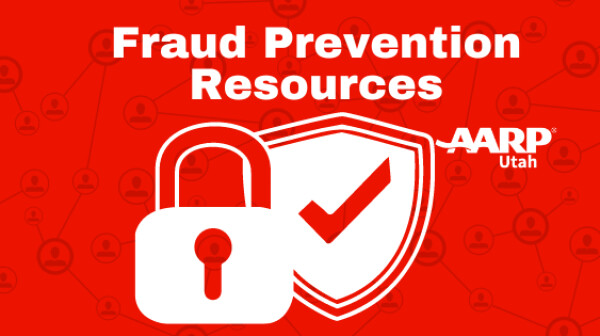AARP Hearing Center

“I’m not going to let them win,” Joyce, from Utah, said through tears as she shared what happened to her last year.
She never imagined she would fall victim to a scam, but in just a few months, she lost her entire savings of over $1 million to criminals who knew exactly how to exploit her trust and vulnerability.
It all started when Joyce was on her home computer. The screen froze and a loud, blaring horn erupted from the speakers. A message appeared on the screen urging her to call the support number provided immediately. "I panicked," Joyce said. "The sound wouldn’t stop, so I called the number."

The person on the other end claimed to be from her computer’s tech support team and ran a “scan” on her computer. The results, they told her, were terrifying: foreign entities in South Korea, Russia, and Europe had supposedly accessed her bank statements. The scammer told Joyce they were going after her money, and she needed to safeguard it right away.
Then came another call — someone yelling, demanding she contact her bank immediately. When Joyce hesitated, they connected her directly to someone claiming to be from her bank: "Dave Johnson".

"Dave" called her every day after that to pressure her to act quickly. Every time he called Joyce’s caller ID showed his name and her bank’s name – so she thought it was real. He told her she needed to liquidate all her assets, including her retirement, IRA and anything else she might have. If she did what they asked, her money would be protected, and the Federal Reserve would reimburse her for anything she lost. "Dave" told Joyce that once they found her computer and accounts were safe, they would deposit the money back into her account. Joyce recalls, "And I did, I handed it all over to them."
First, "Dave" asked Joyce to deposit cash into crypto ATMs. So, she took out cash and found a crypto ATM on three separate occasions to deposit money. But "Dave" told her something went wrong, so instead, she’d need to buy gold bars. He told Joyce they needed to move fast, and because they already had access to her computer and her bank accounts, they offered to handle it. So, the scammers went into her account, bought gold bars and sent them to her home.
“I was told someone from the Federal Reserve would stop by and pick up the gold bars for safe keeping,” said Joyce. She packed up the bars in a bag and handed them off to someone who stopped by to collect them.
This all started for Joyce in March, and by the end of May, all her money was gone. When "Dave" wouldn’t return her calls to provide an update on her computer or money, Joyce realized she was scammed. She filed police reports with the local police department and the FBI.
Looking back, Joyce realizes the scammers targeted her at a time when she was going through a divorce, a time when she was particularly vulnerable. “The scammers are experts, they knew exactly what to do or say. I was no match for them.”
Joyce says hindsight is 20-20, and that running through the list of ‘what-ifs’ in her head won’t do her or anyone else any good. So now she’s on a mission to spread the word and make sure people are aware, these scams could happen to anyone at any time. Joyce now lives cautiously. She doesn’t answer her phone or door unless she knows who it is. And she questions everything. She also recently attended an AARP Fraud Prevention class and encourages everyone to take the time to do so. "I’m mad. I’m going to be ok," Joyce says, "but not enough is being done to prevent scams.
How to protect yourself
The information below is from an AARP article on tech support scams.
- When in doubt, shut down. If your computer is frozen, just unplug it and let it reboot.
- Don’t ever call the phone number in a pop-up. Legitimate tech companies will never ask you to call a phone number or click a link, according to the FTC.
- Ignore the call. If you get an unsolicited call, email or text telling you that there’s a problem with your computer, ignore it. Real tech support staffers will never contact you out of the blue.
- Be wary of requests for remote access. Don’t let an unknown, unverified person get into your computer or device.
- Resist pressure. Scammers urge targets to act quickly to protect their computer or bank accounts. That sense of urgency is to prevent you from having time to think clearly and question their behavior.
How to report tech scams
Report it to your local police. File a report with the FTC online or call the FBI’s Internet Crime Complaint Center. Not every complaint leads to enforcement action, but the information can help officials spot trends and sometimes identify the criminals.
For support and guidance, the trained fraud specialists at the free AARP Fraud Watch Network Helpline, 877-908-3360, can share information about what to do next and how to avoid scams in the future. The AARP Fraud Watch Network also offers online group support sessions.
For additional information on how to protect yourself from computer scams, check the customer support sites for Microsoft and Apple.



































































